“To remember, to focus, to feel – plants can help us come home to ourselves.” – Anonymous Herbalist
A Garden Within
The mind is a wild, fertile field. Some days, it bursts with color and clarity as thoughts bloom effortlessly. Other days, the mind gets tangled in the overgrowth of disorder and confusion. Like any garden, the mind needs tending with light, nourishment, and rest.
Herbs have long been allies in this.
For centuries, herbalists and healers have turned to specific plants to help clear mental fog, uplift the spirit, sharpen the memory, and ease emotional strain.
Today, modern science is catching up with this ancient wisdom, revealing the ways these plants influence neurotransmitters, blood flow, and the body’s stress response.
Let’s walk through the apothecary of the mind – a guided exploration of five herbs that can support mood, memory, and mental clarity.
Now let’s step into the garden together:
1. Gotu Kola (Centella asiatica)
“The herb of longevity”
Gotu kola is a revered brain tonic in both Ayurvedic and Traditional Chinese Medicine. Said to enhance memory, reduce anxiety, and nourish the nervous system, it’s a gentle yet profound herb that seems to whisper calm into the corners of a cluttered mind.
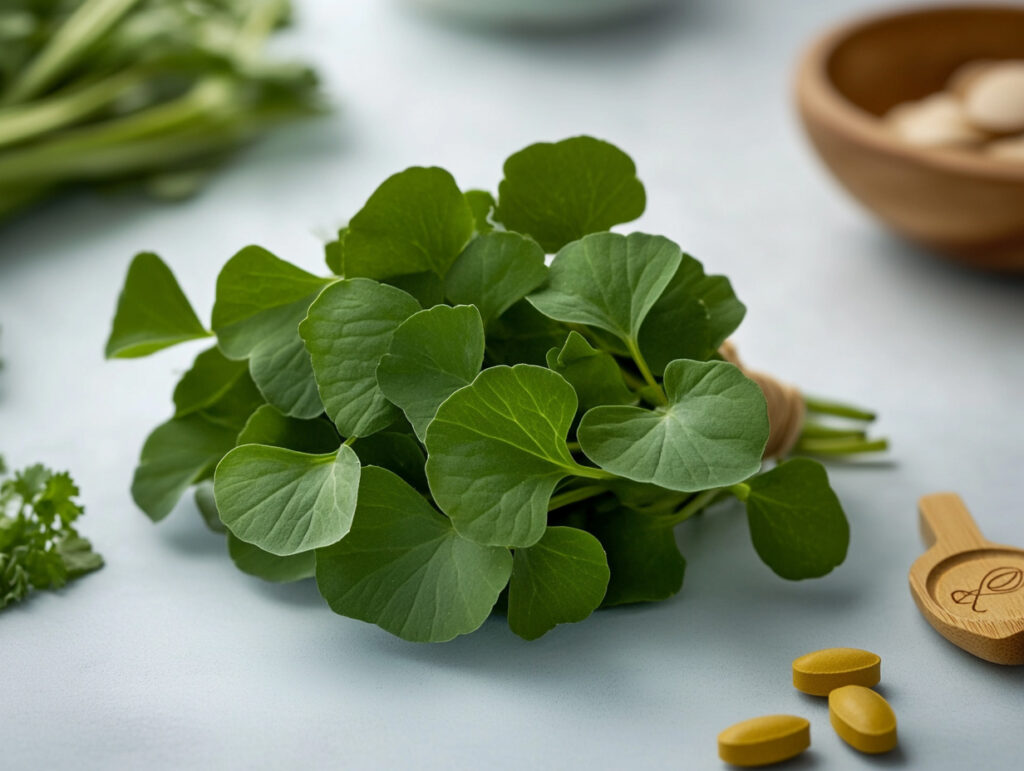
- Benefits: Enhances cognitive function, reduces mental fatigue, promotes circulation to the brain, calms anxiety
- How to use: Often taken as a tea, tincture, or in powdered capsules. For tea, steep dried gotu kola leaves for 10 minutes
- Note: Best used regularly and over time for cumulative effects
2. Bacopa (Bacopa monnieri)
“The scholar’s herb”
Another gem of Ayurveda, bacopa is prized for sharpening intellect and improving memory retention. It is particularly useful during times of study, mental exertion, or creative deep-diving.
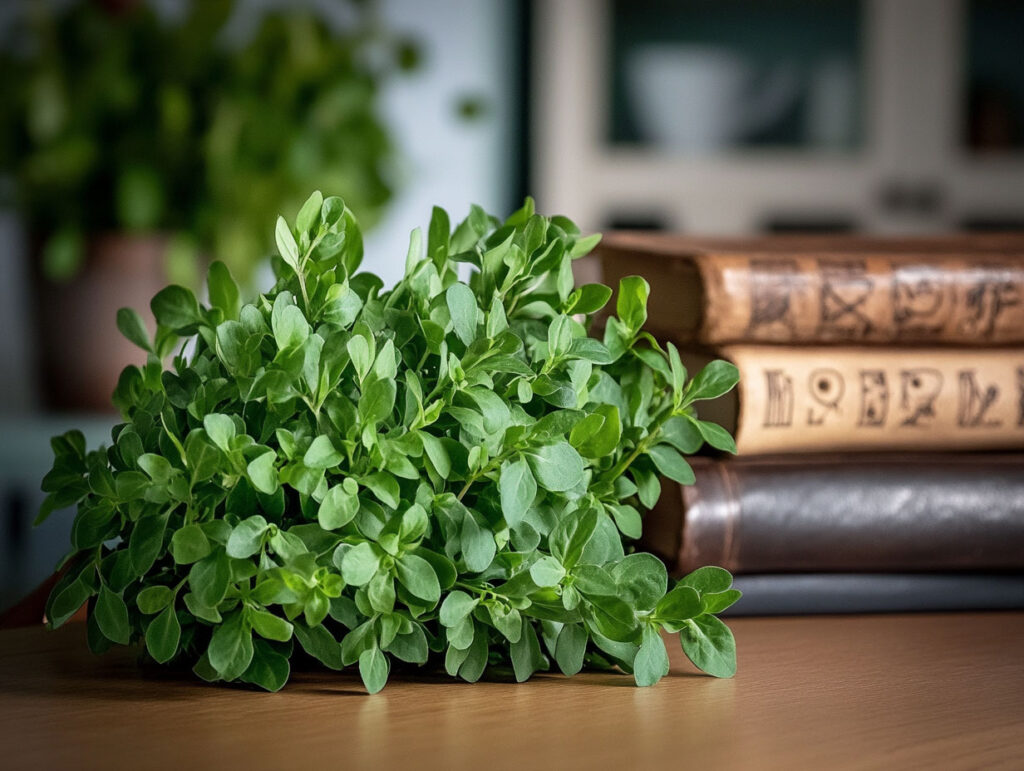
- Benefits: Improves information retention, increases mental speed, protects against cognitive decline
- How to use: Most commonly taken in tincture or capsule form due to its bitter taste, but can be infused into warm milk or tea
- Science says: Bacopa has been shown to support neurotransmitters like serotonin and acetylcholine – key players in memory and mood regulation.
3. Ginkgo (Ginkgo biloba)
“The ancient one”
Ginkgo trees are living fossils, dating back over 270 million years. Their fan-shaped leaves hold compounds that increase blood flow, especially to the brain, making them one of the most studied herbs for mental clarity.
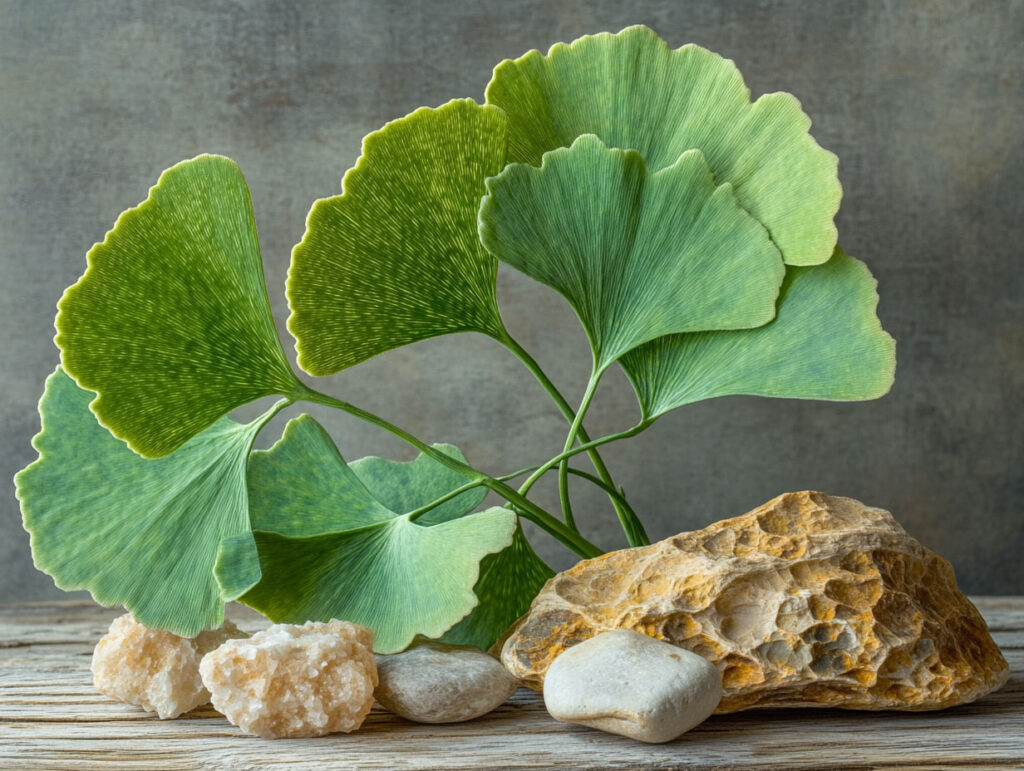
- Benefits: Improves memory, concentration, alertness, and age-related cognitive decline
- How to use: Often consumed as a tea or standardized extract
- Note: Ginkgo is best avoided alongside blood thinners or before surgery, as it can affect clotting.
4. Lemon Balm (Melissa officinalis)
“The joy herb”
Lemon balm is a balm for more than just the nerves – it uplifts the spirit, quiets anxious thoughts, and encourages emotional balance. Its bright citrusy fragrance alone can bring calm to a restless moment.
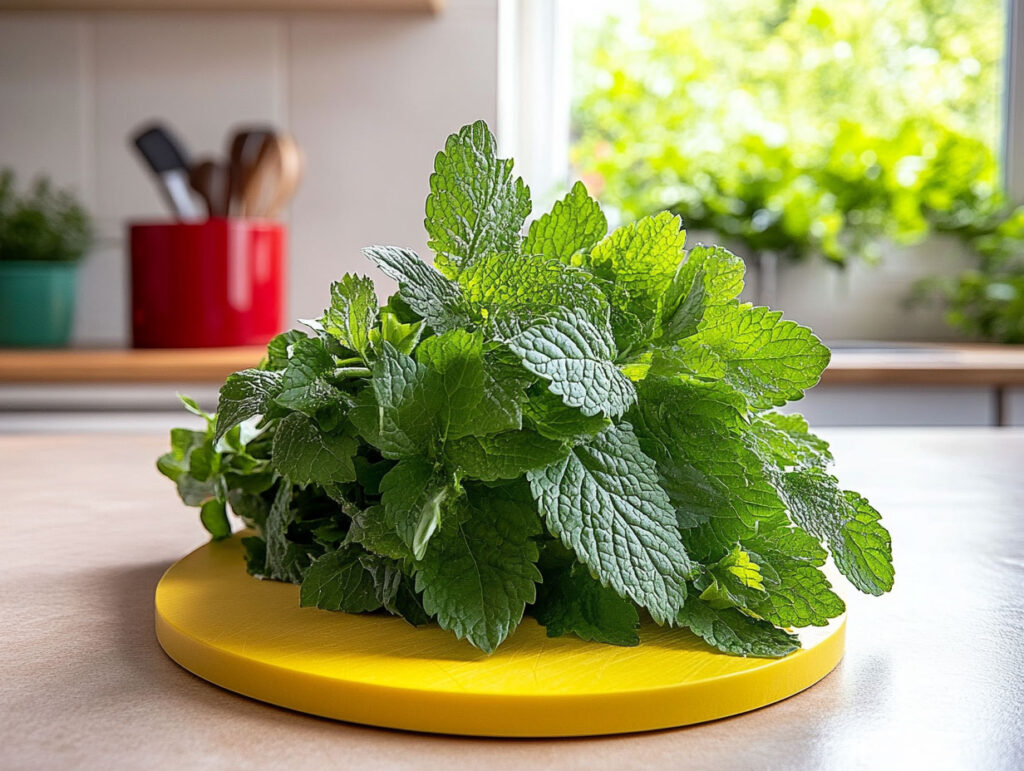
- Benefits: Mild antidepressant, eases nervous tension, improves alertness while calming stress
- How to use: A delightful tea or tincture. Fresh leaves are lovely muddled into lemonade or added to salads
- Energetics: Gentle, bright, soothing – like early morning sun on dewy grass
5. Rosemary (Rosmarinus officinalis)
“For remembrance”
Rosemary has long been associated with memory – in folklore, poetry, and medicine. But beyond its symbolism, rosemary truly stimulates circulation and clears the mind. Just rubbing a sprig between your fingers can feel like switching on a light.

- Benefits: Increases mental energy, sharpens focus, supports alertness and circulation
- How to use: Tea, tincture, or culinary use. Even diffusing rosemary essential oil has been shown to improve memory performance
- Folk wisdom: “There’s rosemary, that’s for remembrance,” said Ophelia in Shakespeare’s Hamlet. The ancients knew
Botanical Recipe: Brain Brew Tea
This blend combines the sharpness of rosemary, the calm of lemon balm, and the clarity of ginkgo into a gentle morning ritual. Perfect before writing, reading, or reflecting.
Ingredients:
- 1 tsp dried rosemary
- 1 tsp dried lemon balm
- ½ tsp dried ginkgo leaves
Method:
- Combine herbs in a teapot or infuser.
- Pour over 1.5 cups of just-boiled water.
- Cover and steep for 10 minutes.
- Strain and sip slowly, breathing in the steam.
Optional: Add a splash of oat milk or a drizzle of raw honey if desired. Drink warm, in silence or with soft instrumental music.
Rituals for a Botanical Brain
It’s not only what you sip – but how. These small rituals can amplify the effects of herbal support and bring rhythm to your inner world:
- Morning Brew for Clarity – Start your day with a botanical tea, screen-free and intention-filled.
- Midday Walk with Rosemary – Tuck a sprig in your pocket or diffuse rosemary oil while working.
- Evening Lemon Balm Journal – Brew lemon balm and let your thoughts spill out with softness and clarity.
- Bacopa Deep Dive – Use during periods of study or creative brainstorming; let your mind explore and anchor.
When to Turn to Plants for Mental Support
Herbs aren’t replacements for professional help, but they are gentle companions for the journey. If you’re feeling cloudy, scattered, anxious, or dulled by the overstimulation of modern life, these plants may help you return to a steadier rhythm. They won’t overwhelm or override—they’ll remind, and realign.
Remember: subtle is not the same as weak. Nature works in layers and spirals, not switches.
Conclusion: The Mind as a Living Landscape
The brain is not a machine – it’s a meadow. Ever-shifting, blooming, growing, resting. And plants, like patient gardeners, know how to help. They work slowly, kindly, and in rhythm with the seasons of our minds.
To sip a tea made from lemon balm or rosemary isn’t just consumption -it’s communion.

Do you care for your mind as lovingly as your body?

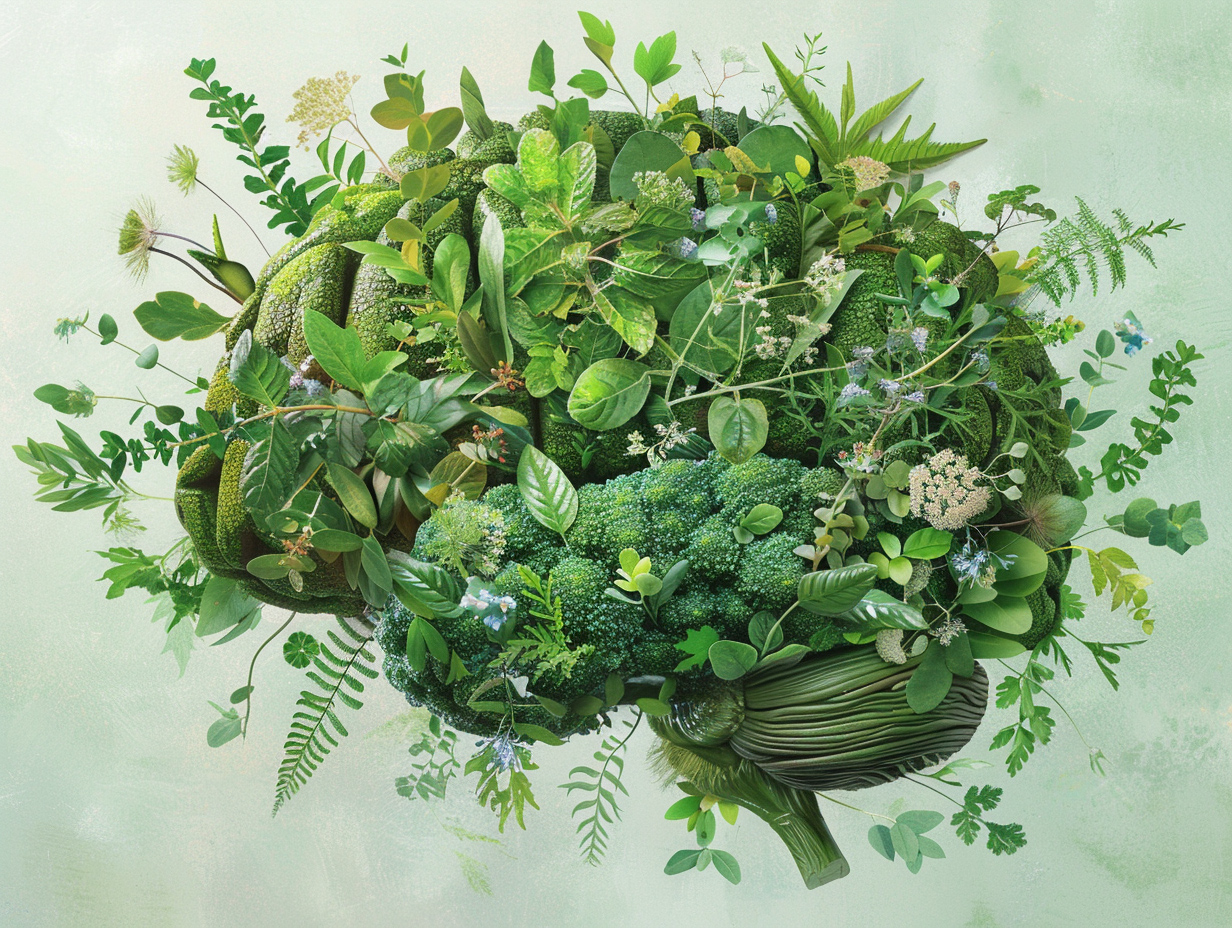
Leave a Reply